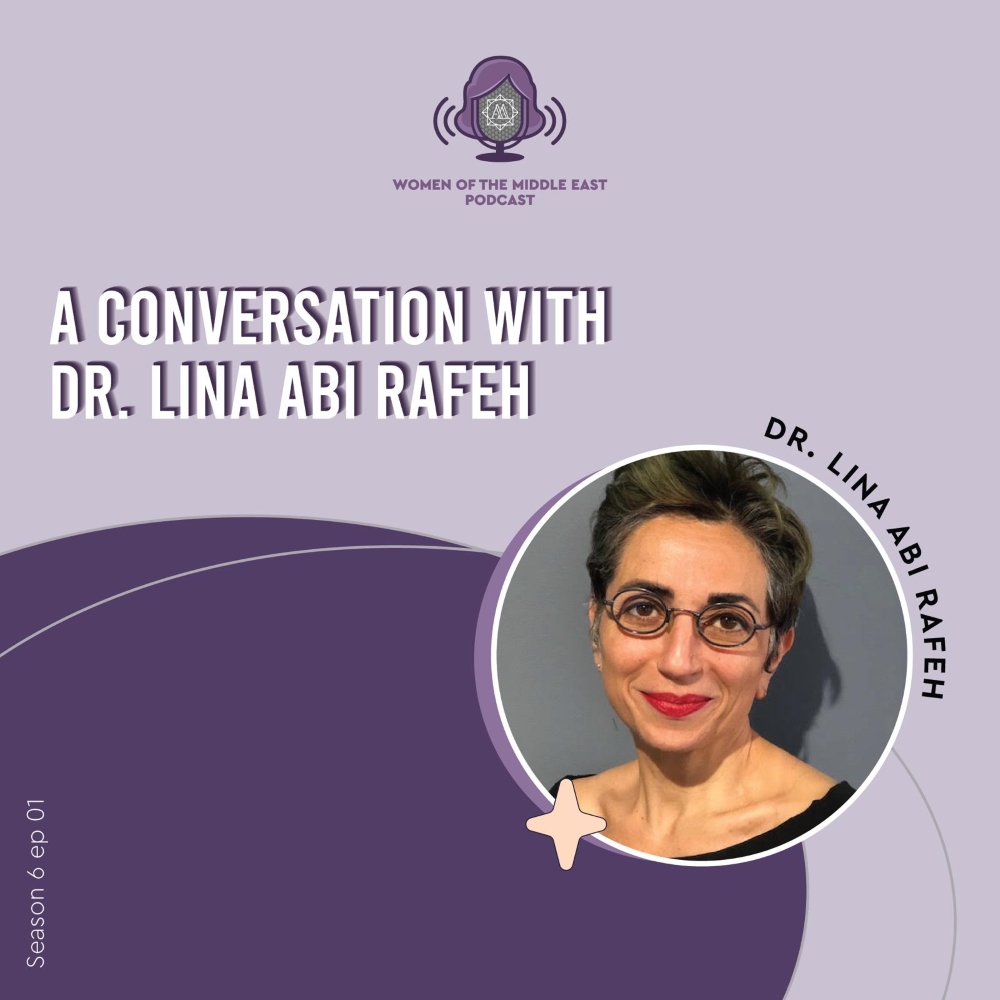Welcome to Season 6 of the Women of the Middle East podcast, which present…
It’s Dean, Feminization Arabic
أنا عميدة، لست عميد!
تأنيث المهن في اللغة العربية
The Arabic language has long been characterized by its treatment of gender, with a clear distinction between masculine and feminine forms in nouns, adjectives, and verbs. Still there is an insistence on using the masculine form to refer to all public and professional designations.
However, the evolving landscape of #genderequality has sparked a movement to feminize designations assumed by women, aiming at making it more inclusive and reflective of women’s presence and contributions. Recent discussions and studies have shed light on the importance of incorporating feminine forms into Arabic vocabulary to promote gender equality and challenge traditional gender norms.
One example of the impact of this movement is the predominant use of the masculine form of “Dean,” traditionally associated with men, when referring to both men and women. The accurate designation should include the feminine form when referring to a woman Dean, as “عميدة” in Arabic. Similarly, the term “وزير” (Minister) has historically been associated with men, but with shifting attitudes and increased female representation, a more appropriate translation would be “وزيرة” when applicable.
The #feminization of the Arabic language has several positive effects. It increases women’s visibility and promotes gender equality. By acknowledging the feminine forms of words and titles, the language exposes the historical absence of women’s contributions in society. This can help break down stereotypes and biases, challenge norms, and foster a more inclusive and equitable society.
Furthermore, the addition of the feminine form improves communication’s accuracy and precision. When speaking or writing, the gender of the person being referred to becomes clear, particularly in professional and academic contexts where precision is essential. This linguistic clarity facilitates effective communication and eliminates ambiguity.
By incorporating feminine forms and linguistic markers, Arabic can become a more inclusive language that accurately reflects the contributions and experiences of women and a powerful tool for social progress. The feminization of the Arabic language is a necessary step towards gender inclusivity and should be embraced without hesitation.
Through actively promoting gender equality through language, we can create a more just and inclusive society where women’s contributions and presence are acknowledged and valued. Any resistance to this linguistic transformation would perpetuate implicit exclusion of women, reinforcing the existing disparities and marginalization they face. The The ongoing movement to feminize the Arabic titles is an essential endeavor as part of the continued pursuit of gender equality and inclusion as well as, a testament to the resilience and determination of those advocating for positive change.
Please follow me and the Women of the Middle East Podcast for more thought provoking topics.
تأنيث المهن في اللغة العربية
The Arabic language has long been characterized by its treatment of gender, with a clear distinction between masculine and feminine forms in nouns, adjectives, and verbs. Still there is an insistence on using the masculine form to refer to all public and professional designations.
However, the evolving landscape of #genderequality has sparked a movement to feminize designations assumed by women, aiming at making it more inclusive and reflective of women’s presence and contributions. Recent discussions and studies have shed light on the importance of incorporating feminine forms into Arabic vocabulary to promote gender equality and challenge traditional gender norms.
One example of the impact of this movement is the predominant use of the masculine form of “Dean,” traditionally associated with men, when referring to both men and women. The accurate designation should include the feminine form when referring to a woman Dean, as “عميدة” in Arabic. Similarly, the term “وزير” (Minister) has historically been associated with men, but with shifting attitudes and increased female representation, a more appropriate translation would be “وزيرة” when applicable.
The #feminization of the Arabic language has several positive effects. It increases women’s visibility and promotes gender equality. By acknowledging the feminine forms of words and titles, the language exposes the historical absence of women’s contributions in society. This can help break down stereotypes and biases, challenge norms, and foster a more inclusive and equitable society.
Furthermore, the addition of the feminine form improves communication’s accuracy and precision. When speaking or writing, the gender of the person being referred to becomes clear, particularly in professional and academic contexts where precision is essential. This linguistic clarity facilitates effective communication and eliminates ambiguity.
By incorporating feminine forms and linguistic markers, Arabic can become a more inclusive language that accurately reflects the contributions and experiences of women and a powerful tool for social progress. The feminization of the Arabic language is a necessary step towards gender inclusivity and should be embraced without hesitation.
Through actively promoting gender equality through language, we can create a more just and inclusive society where women’s contributions and presence are acknowledged and valued. Any resistance to this linguistic transformation would perpetuate implicit exclusion of women, reinforcing the existing disparities and marginalization they face. The The ongoing movement to feminize the Arabic titles is an essential endeavor as part of the continued pursuit of gender equality and inclusion as well as, a testament to the resilience and determination of those advocating for positive change.
Please follow me and the Women of the Middle East Podcast for more thought provoking topics.
Link to the article
You may also check
Women’s experiences during #Ramadan differ significantly from…


